By the time I’d finished my lunch, the sun had come out and it was even hotter and more humid. As I continued my meandering, I passed a dilapidated building with crowds streaming in and out. I had read about Athens’ Central Market and I had a feeling this was it. Slabs of meat hung on both sides of a long arcade. I’m not squeamish about raw meat, but there was something disturbing about this display. Maybe it was the slippery wetness underfoot or maybe it was the butchers’ bloodstained aprons. Whatever the case, I told myself that if I lived in Athens and this was the only place to procure meat, I would quickly become a vegetarian.
Moving toward the Acropolis, I found myself in the “Archeological Park” – the walkway built for the 2004 Olympics that connects the city’s most important monuments and leads up to the Parthenon. I hadn’t intended to visit the ruins until the next day, but I felt the urge to press on.
Passing the Roman Agora built by Roman leaders as an extension of the Ancient Agora – Athen’s commercial and civic center where Socrates and Plato strolled and St. Paul spoke – I’m drawn to The Tower of the Winds, the only monument there that’s still standing. Built as a combination sundial and water-powered clock, the octagonal structure served as a home for whirling dervishes in the 18th century.
Along the way, a Greek Orthodox church caught my eye, and although there was nothing remarkable about its exterior, I felt compelled to go inside. As I entered the chapel, I was overwhelmed with sadness. Fighting back tears, I sat down on one of the little carved wooden chairs hoping information would come to shed light on my feelings. Gazing at the Byzantine icons and mosaics and watching supplicants walk up to and kiss portraits of saints I didn’t recognize, I had no idea where this emotion was coming from, but it was very strong. I wondered if there might be a connection between my lifetime in Delphi and another here in Athens. Or maybe this sadness wasn’t even mine.
Before climbing the final stretch to the top of the Acropolis, I stopped to admire the Theater of Dionysos. Dedicated to the god of wine and fertility and patron of the arts, it was built in the 4th century B.C. and restored early in the 19th century. With 64 rows of seats, the original theater accommodated up to 17,000 and hosted Athens’ City Dionysia Festival where dramatists Sophocles, Euripides and Aristophanes competed.
When I reached the top of the Acropolis, I found that the Propylaia, the 5th century entrance, and the Temple of Athena Nike had been almost entirely dismantled for restoration. The only two structures currently standing are the Parthenon and the Erechthion, the tomb of the legendary King of Athens famous for its Caryatids.
Despite its compromised condition with scaffolding encasing three sides, my first glimpse of the Parthenon took my breath away. I never imagined I’d be standing in front of this famous temple, yet there I was. The intense sun and the unrelenting wind told me I wasn’t dreaming. I walked all the way around the monument trying to grasp its enormity imagining its grandeur before its sculptures and friezes were carted away.
Feeling that I’d seen enough historical monuments for one day, I headed back down towards the Plaka. I wanted to rest and it was too early for dinner, so I stopped at a small taverna for a drink. I ordered ouzo, the famous Greek anise-flavored spirit similar to pastis and absinthe. Sitting beneath a canopy of grape vines, sipping my drink, I was hoping for a bit of an altered state, but it didn’t happen. A young couple across the steps finished their drinks and moved away pausing for a deep, passionate kiss. This, too, made me sad. I understood and appreciated the need to make this journey alone, but there were times when I longed for a companion to share the day’s experiences and this was one of them.

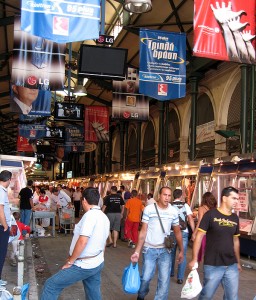
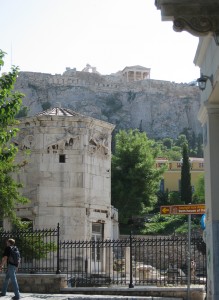
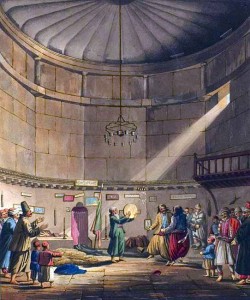
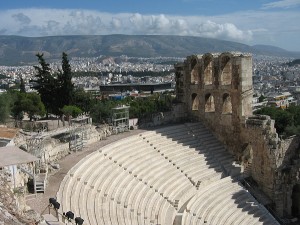
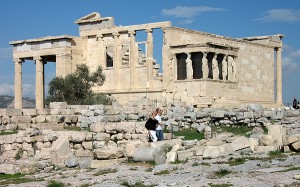
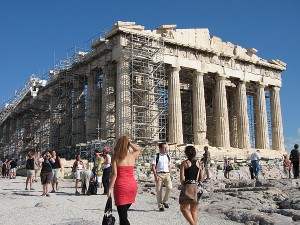
This is a wonderful piece of writing, full of specificity and detail. I feel as though I am in Athens with you!